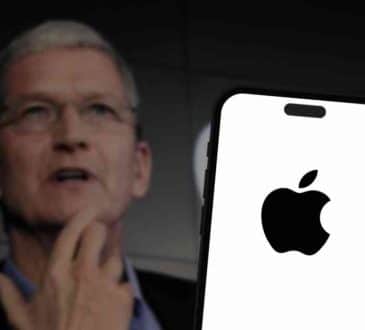What’s Now in Leadership?

I was asked a great question recently about leadership and what today’s leaders need to know. I suspect it was asked with the intent of what’s next versus what’s now. While I may not be among the leadership scholars who can predict the future, I can share what I see today and what appears to be essential for today’s leaders.
7 Recommendations from AI
If you asked Chat Smith (GPT-4), it would recommend, based on the current knowledge of what leaders are being taught up to 2023, the following:
- Emotional Intelligence (EI):
EI is the ability to understand and manage your own emotions, as well as those of the people around you. People with a high degree of emotional intelligence know what they’re feeling, what their emotions mean, and how these emotions can affect other people. - Inclusive Leadership:
This concept emphasizes the need for leaders to ensure a sense of belonging among all team-members, irrespective of their background or identity. It values diverse perspectives and encourages fairness in opportunities and participation. - Servant Leadership:
A servant leader shares power, puts the needs of others first, and helps people develop and perform as highly as possible. - Sustainable Leadership:
This refers to leadership that is principled and paced, reflecting a concern for environmental and social issues, promoting long-term success over short-term wins. - Digital Leadership:
With the increasing dominance of technology, leaders are required to be digitally literate. They need to understand how to use data, how to harness the potential of artificial intelligence, and manage remote and virtual teams. - Agile Leadership:
This concept enables leaders to cope with rapid changes. It puts emphasis on flexibility, adaptability, and the ability to lead teams toward fast decision making. - Ethical Leadership:
This concept emphasizes the importance for leaders to behave ethically themselves and to embed ethical practices within their organizations.
Again, the evolution of leadership practices is an ongoing process and can vary between industries, regions, and cultural contexts. The concepts I’ve mentioned here were essential as of 2023. For the most up-to-date trends, I recommend reaching out to a professional in the field or researching from credible and recent sources.
7 Peernovation Perspectives
AI describes Peernovation as the concept of driving innovation and results by collaboratively leveraging a group or team’s skills and shared experiences. Embracing and leveraging this concept will be essential to leading any organization between now and at least 2030. Here are my seven additions to AI’s excellent recommendations.
Meet People Where They Are
To do so, take an interest in who they are and understand their aspirations. Leaders who ask, “How are you?” first, versus “What have you done for me lately?” will likely get a more favorable answer to the second question. Rather than try to impress your employees, show your people how much they impress you and watch what happens. Make it a daily habit.
Swim With the Current/Stand like a Rock
Since March 2020, leaders have been challenged by a new world order – not something 99% would have chosen. Together, you and your team weathered the storm. I believe moving forward most effectively will require leaders to embrace this quote from Thomas Jefferson: “In matters of style, swim with the current; in matters of principle, stand like a rock.” When it comes to your values, quality, standards of excellence, etc., then by all means, stand like a rock. If you want to show your people you believe in them, invite your associates to own their solutions regarding collaboration and teamwork in a new world and swim with the current.
Clarity
In 2022, Grammarly/Harris Poll conducted a study on the state of communication in business and revealed that companies were losing $1.2 trillion annually because of ineffective communication in the US alone. It also revealed that among the knowledge workers who participated in the survey, more than 80% saw themselves as good communicators. Does that tell you that the problem will get better anytime soon? Of course not. Until leaders fully embrace the idea that the receipt of any message they deliver is received as intended is their responsibility, they will continue to be contributors to the $1.2 trillion fund, and their organization will suffer beyond that in the process.
Connected Purpose
Having a clear organizational “why” is an important step, but it doesn’t stop there for today’s leaders. A big reason for that is while many of us like to cling to the sentiment that there is no I in team, there are many I(s) on your team. As a leader, your job is to understand why your employee works for you instead of for the countless other available companies. Understand their personal why, connect it to the organization’s reason for existing, and watch what happens to employee engagement.
Leading Change
In Peter Senge’s book, The Fifth Discipline, Senge shares something someone told him about change: “People don’t resist change, they resist being changed.” It makes perfect sense. If someone imposes change on us, we don’t typically like that. Yet, when we feel we are driving the change or included as part of it, it’s much more acceptable to us. Gone are the days of the senior leadership team going on a strategic planning retreat to an exclusive resort and returning from their offsite to impose their wisdom on the rest of the organization. It’s neither smart nor very strategic. Engage and involve all of your employees.
Seeing the Vertical and the Horizontal
Leaders tend to look at organizations vertically more than horizontally. It’s among the reasons organizations have silos and why CEOs see de facto positions/roles and responsibilities as crucial while ignoring the talents of highly influential employees who may not have the fanciest job titles. If you have a new policy or strategic initiative you want to introduce to the organization, you’d be wise to engage your key influencers. They will do more to inspire the rank and file to support the change than you as a leader ever could. Why? Because they trust each other more than anyone else.
Celebration
Most organizations I’ve encountered do a poor job of celebrating the work (the small wins). A proven practice is that the more often you celebrate the small wins (progress), the more likely you’ll be able to celebrate the big goals. Celebrating progress is not frivolous; it’s the fuel your people need to reach the finish line! (Where I hope a big celebration awaits!)
Summary
I invite you to consider what AI provided and what I suggested. Remember, by 2025, 64% of your workforce will include millennials and Gen Z’s. By 2030, it will be 75%. The sooner you start taking inventory of your current practices compared with what’s been described here, the more likely you’ll be prepared to thrive in a world of what’s now and what’s next.
Have you read?
The world’s largest economies in 2023.
Ranked: Safest Countries in the World, 2023.
Countries With the Most Female Billionaires, 2023.
Economy Rankings: Largest countries by GDP, 2023.
The Global Passport Index: The World’s Most Powerful Passports.
Add CEOWORLD magazine to your Google News feed.
Follow CEOWORLD magazine headlines on: Google News, LinkedIn, Twitter, and Facebook.
Copyright 2024 The CEOWORLD magazine. All rights reserved. This material (and any extract from it) must not be copied, redistributed or placed on any website, without CEOWORLD magazine' prior written consent. For media queries, please contact: info@ceoworld.biz









